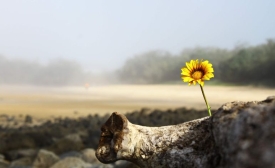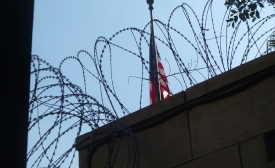international security

We need to have better ways of analyzing and comparing coercive and nonviolent tools of statecraft while reimagining it to be more humanly decent and less violent.
The Association of Southeast Asian Nations (ASEAN) commemorated its golden foundation anniversary yesterday with the theme of “Partnering for Change, Engaging the World.” The ASEAN foreign ministers and 17 other dialogue partners converged in Manila to discuss top regional political concerns and international security threats in order to secure peace, stability, and economic developments for Southeast Asia’s more than half a billion diverse people.
The international community has become accustomed to purely relying on "sticks" to force North Korea to abandon its nuclear program. The question is: Why will North Korea comply if it does not receive any "carrots" in return? From North Korea's perspective, the outside demand for its de-nuclearization is completely unacceptable and unfair. North Korea has proved resilient enough to resist sanction after sanction. It is time that the international community changed its approach now.
Overseas, the State Department is working with other countries and organizations to share experiences, ideas, and practices that can assist partner nations to better protect public places. Under the auspices of the Global Counterterrorism Forum (GCTF), the United States and Turkey are co-leading the “Protection of Soft Targets in a Counterterrorism Context Initiative,” which aims to raise awareness, identify needs, and leverage expertise and experiences to better protect potential soft targets.

This research project analyzed how U.S. public diplomacy has changed in the wake of the Benghazi attacks and will offer recommendations on how best to carry out core PD outreach and programs.
A US-led push for India to join a club of countries controlling access to sensitive nuclear technology made some headway on Thursday as several opponents appeared more willing to work towards a compromise, but China remained defiant.
The Art Of Future Warfare (AOFW) is a project sponsored by the Atlantic Council’s Brent Scowcroft Center on International Security. It’s based on the idea that writers, artists and game designers have a lot to offer policy wonks. So it’s launched a year-long effort to engagecreatives with a series of challenges about the future of conflict. August Cole, director of AOFW, believes the creative arts are essential to military and policy thinking.







